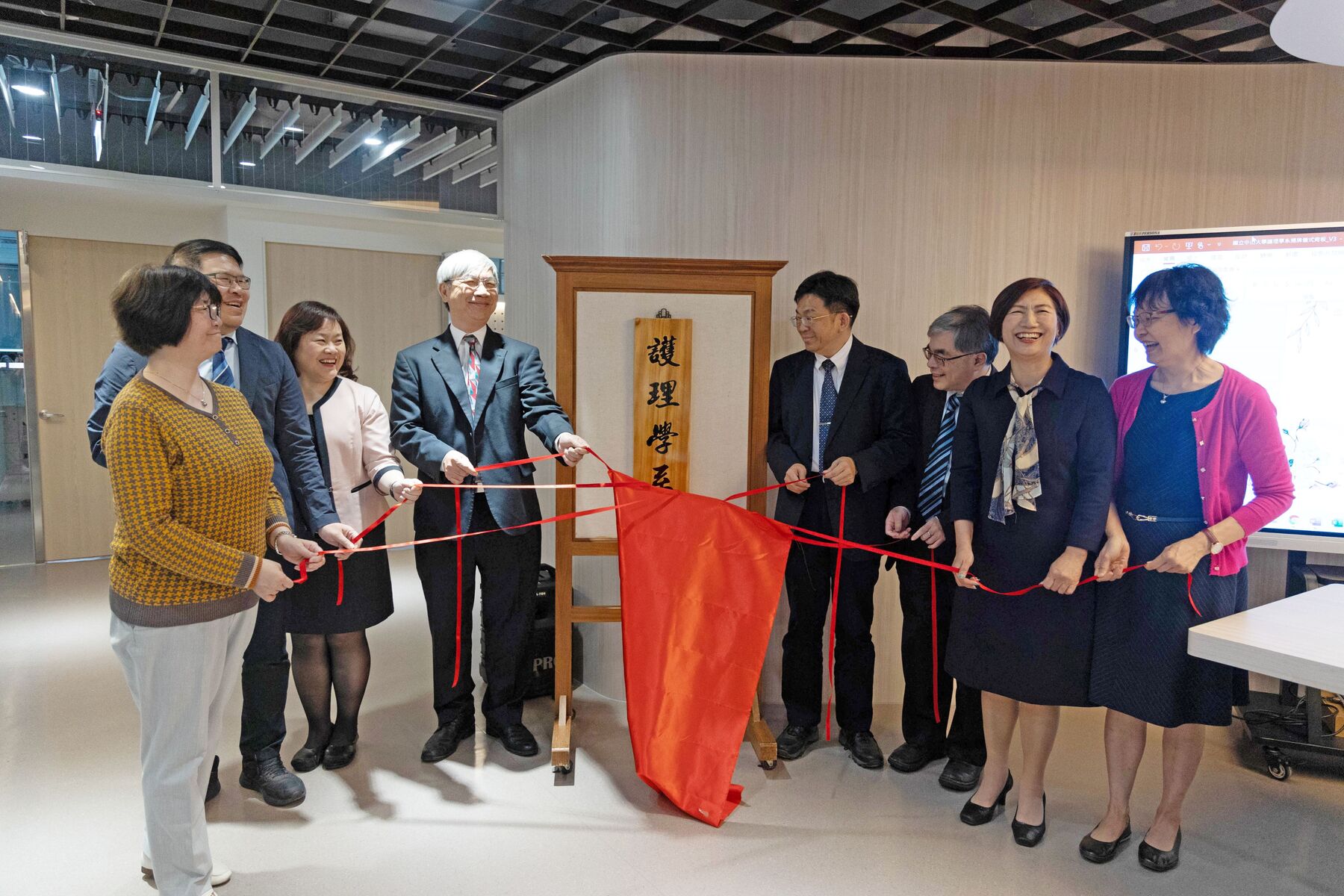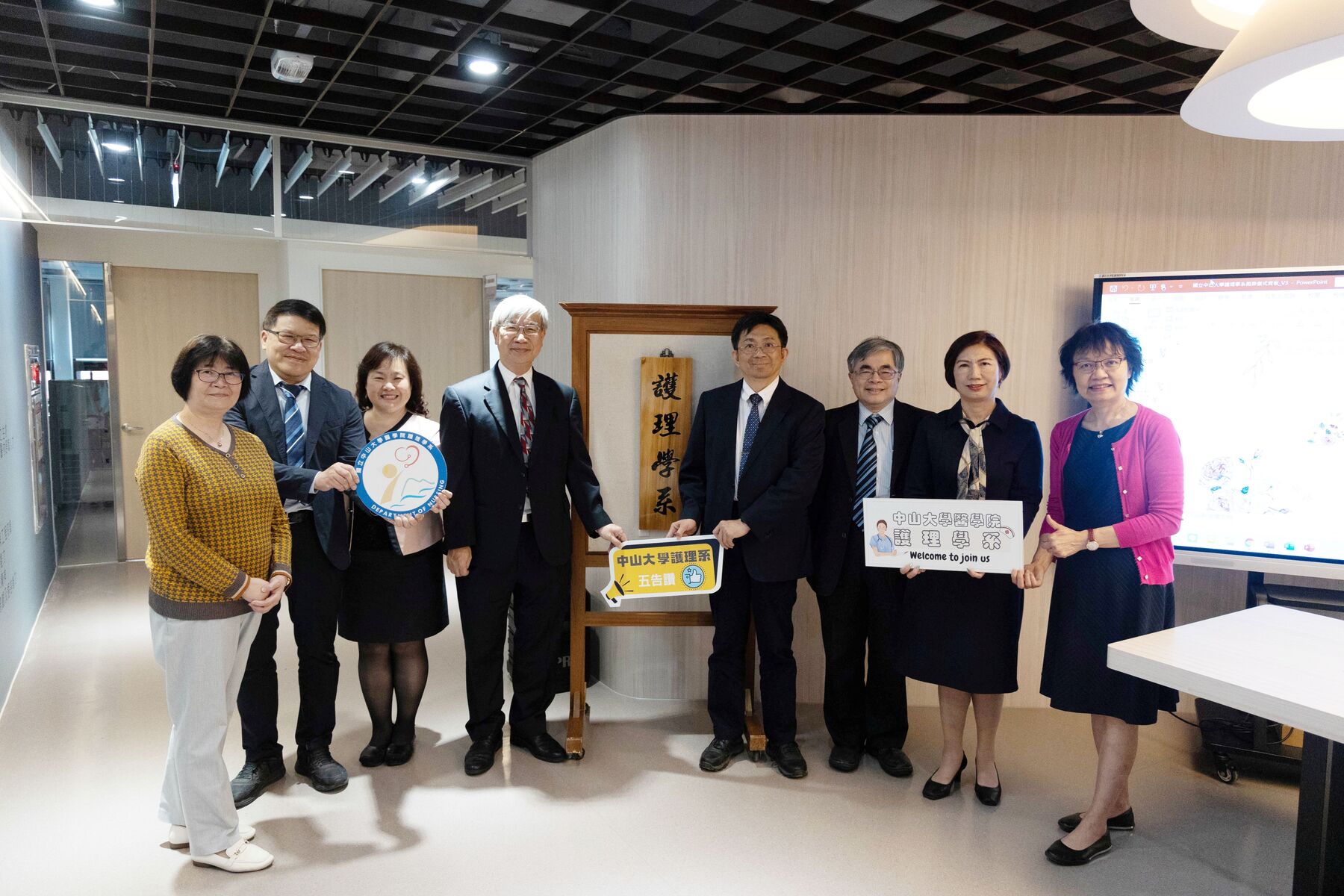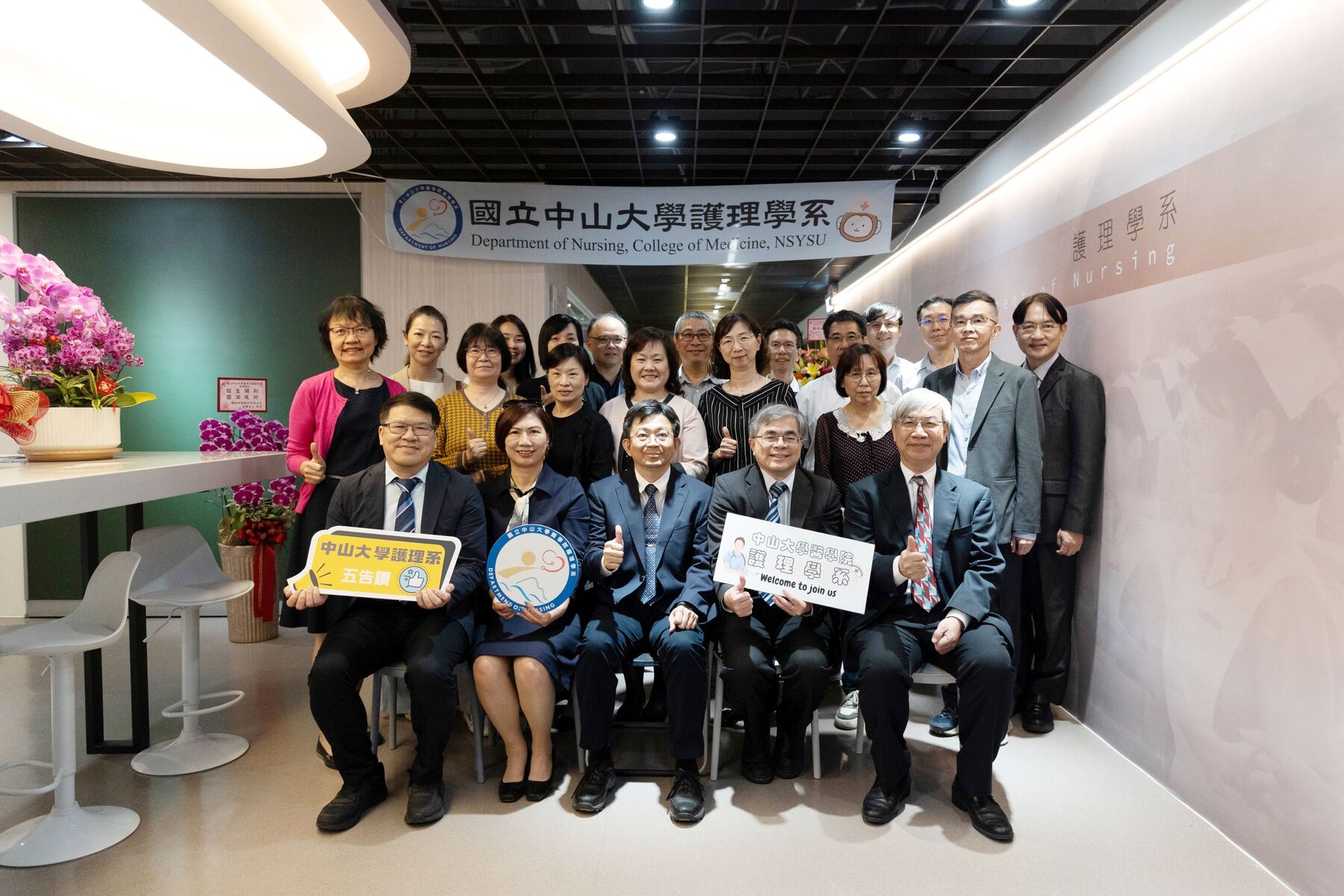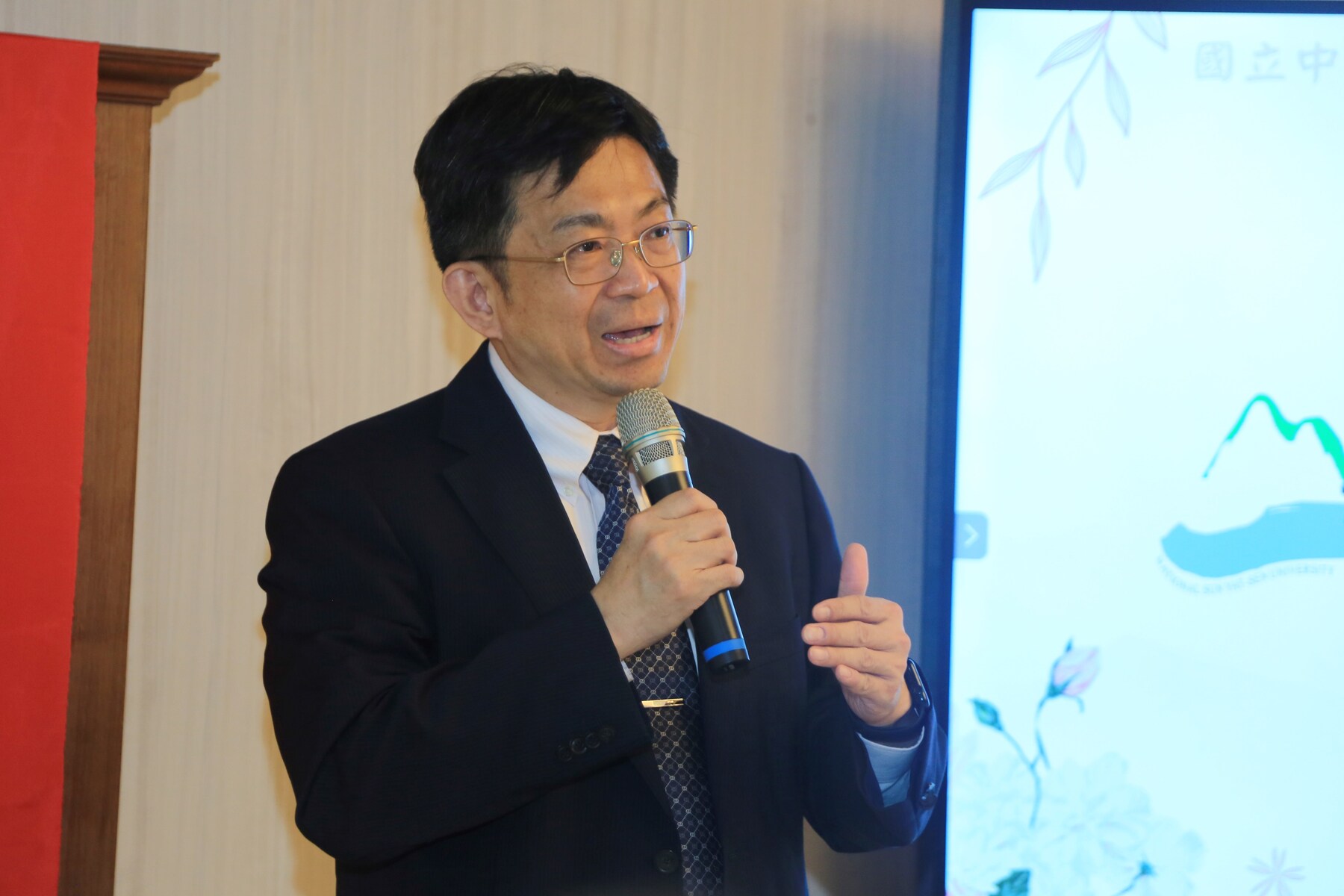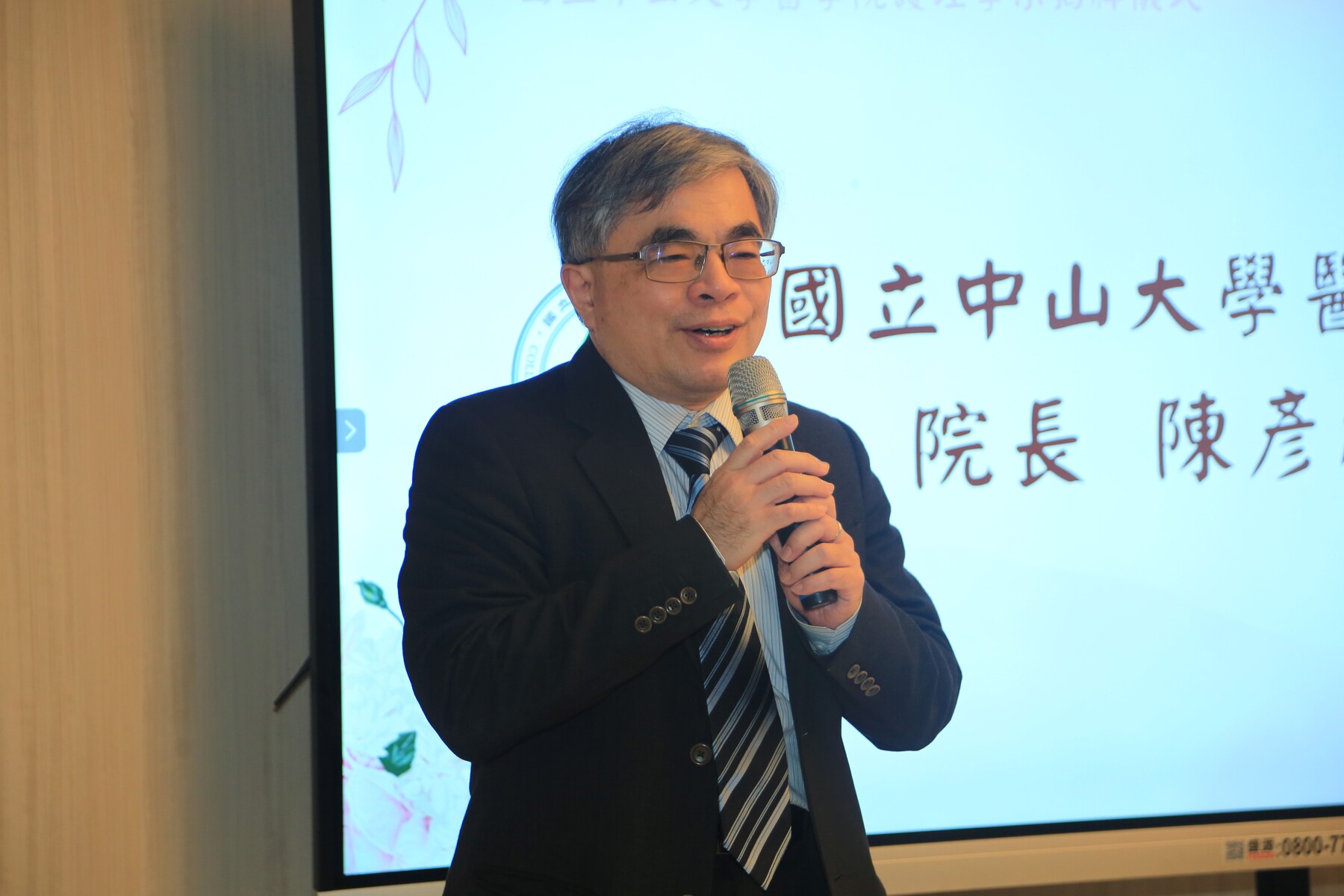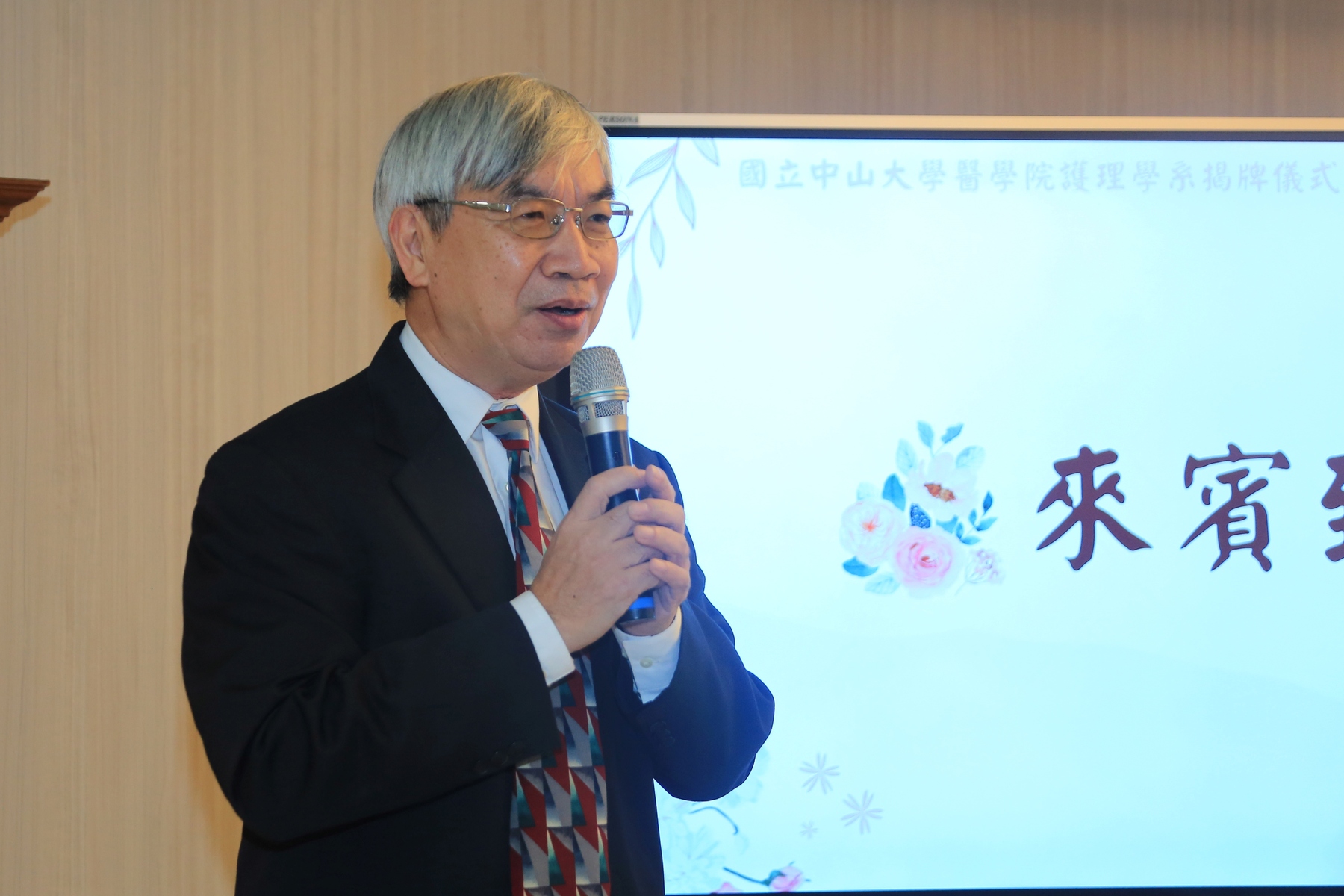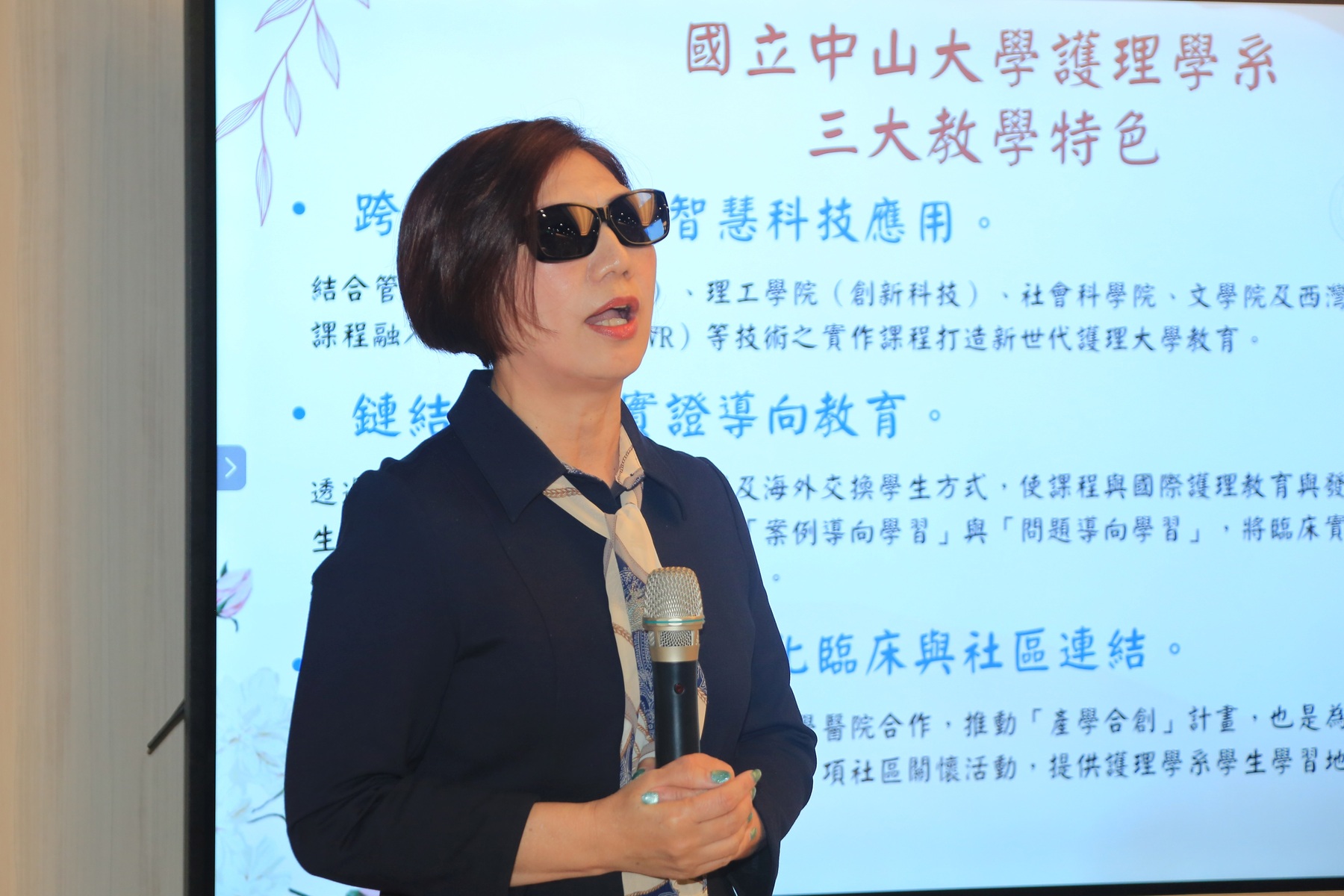The first Department of Nursing of a national university in the Kaohsiung-Pingtung region is unveiled: NSYSU cultivates scientific and technological nursing talents
2025-07-21
As Taiwan enters a super-aged society, the shortage of nursing personnel is becoming increasingly severe. Cultivating high-quality nursing professionals has become an essential issue for national development. In response, National Sun Yat-sen University (NSYSU) has officially established the Department of Nursing to cultivate international interdisciplinary talents. The new department will admit its first cohort of 45 students this August and offer international exchange programs to foster globally competent nursing professionals. A plaque unveiling ceremony was held in the university's Library and Information Building, with the participation of distinguished guests, including NSYSU President Chih-Peng Li, Senior Vice President and Dean of the College of Medicine Yen-Hsu Chen, Deputy Superintendent of Kaohsiung Medical University Chung-Ho Memorial Hospital Henry Horng-Shing Lu, Chairperson of the Hsin Kaohsiung Nurses Association Man-Chun Chou, and Executive Deputy Superintendent of Kaohsiung Chang Gung Memorial Hospital Kuo-Chung Lan.
According to a Ministry of Health and Welfare study on the projected nursing workforce over the next decade, Taiwan faces a shortage of 15,000 to 24,000 nurses in 2024. Although over 310,000 individuals hold nursing licenses nationwide, only about 180,000 are registered and practicing, highlighting a critical shortage of frontline nursing staff.
NSYSU President Li emphasized that, as the only comprehensive national university with a College of Medicine in the Kaohsiung-Pingtung-Penghu-Taitung region, NSYSU is committed to its social responsibility by establishing the Department of Nursing. The goal is to nurture a new generation of competent healthcare professionals. The educational philosophy of the Department of Nursing at NSYSU is centered on humanistic and holistic care, integrating innovative technologies with an international perspective to cultivate nursing talents with high professional qualities, empirical ability, and global competitiveness. It will combine the majors in campus humanities, artificial intelligence, medical equipment, and smart technology to develop more innovative courses, provide students with the most forward-looking learning environment, and cultivate a cradle of talents with advantages in clinical nursing and smart technology application.
Department Chair Su-Er Guo noted that the Department of Nursing is built on three major learning features, including creating a new generation of nursing university education based on core capabilities and combining interdisciplinary practical courses; using multiple models and international exchange courses to align the courses with international nursing education and development trends; combining AR & VR simulated clinical care, creating innovative technology applications and designing interdisciplinary practical courses, and matching the Colleges of Social Sciences, Management and local enterprises to promote several community care activities to provide the Department of Nursing students with the opportunity to learn local revitalization, health promotion, and the cultivation of humanistic qualities to care for their hometown.
At the same time, the Department of Nursing at NSYSU will also focus on high-demand areas, developing distinctive courses such as "Smart Health Management" to bridge existing gaps in nursing education. These efforts aim to enhance professional standards while promoting efficiency and innovation in smart nursing practices.
"We sincerely welcome individuals who are compassionate, socially conscious, and eager to challenge themselves to join us in shaping a new era of nursing-led healthcare," said Senior Vice President and Dean of the College of Medicine, Yen-Hsu Chen. NSYSU's College of Medicine has partnered with leading medical institutions, including Kaohsiung Veterans General Hospital, Kaohsiung Chang Gung Memorial Hospital, Chi Mei Medical Center in Tainan, Kaohsiung Medical University Chung-Ho Memorial Hospital, and the Kaohsiung Armed Forces General Hospital, to establish a robust medical education network in southern Taiwan. These partnerships will support industry-academia collaboration and provide crucial clinical training for nursing students. It is also an essential backing for cultivating clinical practice experience for nursing students, and is a significant driving force for promoting students' forward-looking cross-domain learning.
